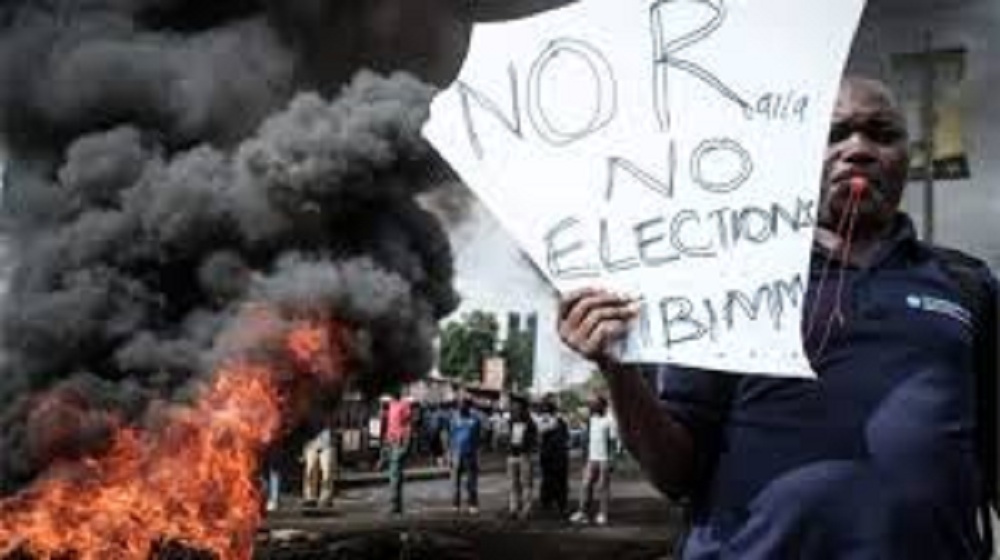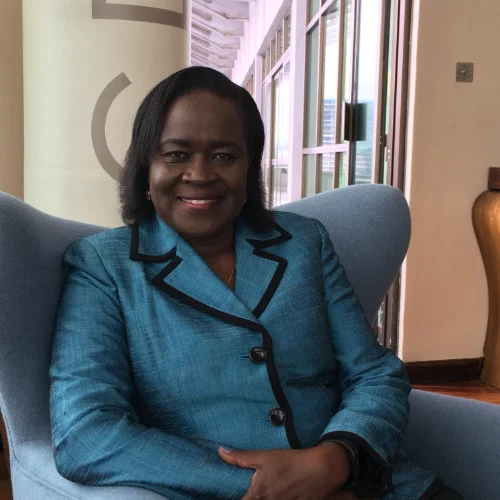Joyce Njeri stands outside her clothes boutique in Nairobi trying to entice a handful of passers-by to look at the clothes she has for sale. There aren’t many takers.
Commerce in Nairobi’s central business district already started tailing off before presidential elections on August 8 that the Supreme Court annulled following vote-rigging allegations. It’s slowed dramatically during the twice-weekly protests the opposition called to demand an overhaul of the electoral commission before a rerun of the vote.
“My clients are afraid of coming into the CBD because the protests can mean you either get tear gassed or robbed,” Njeri, 33, said in an interview. “The human traffic to the shop is almost nothing. We just want to go back to normal.”
Hopes that fresh elections this month would end the turmoil were dashed Tuesday when opposition leader Raila Odinga withdrew from the October 26 vote, saying the commission hadn’t made enough changes to ensure a free and fair election. With the stage set for a prolonged political standoff, Kenya’s stellar growth rate and reputation as one of Africa’s top investment destinations are now increasingly at risk.
“The economy is slowly shutting down as we wait for political issues to be resolved,” Anzetse Were, an independent economist, said by phone from Nairobi. “People are holding onto their money, businesses are suffering and contracts have been delayed. We are in uncharted ground and nobody knows how this will end.”
Sagging growth
Treasury Secretary Henry Rotich warned last month that the protracted election period and a drought were hurting output, spending and tax revenue, and said projections of 5.5% economic growth this year may have to be revised downward. Growth has averaged 5.2% over the past decade, an expansion that’s drawn investment from companies including Google Inc., Toyota Motor Corp. and General Electric Co.
President Uhuru Kenyatta shows no sign of giving ground in the dispute. He labeled the judges who nullified his initial victory as “crooks” and told supporters the rerun will go ahead even if he’s the sole candidate. On Wednesday, Kenyatta’s Jubilee party used its majority in parliament to pass an amendment enabling the electoral authority to declare a winner if one contestant withdraws.
Odinga had demanded sweeping personnel changes at the electoral body, including the removal of its chief electoral officer, as well as an overhaul of counting procedures, and said protests will continue until his demands are met. The Independent Electoral & Boundaries Commission said on Wednesday the election will go ahead as scheduled.
While the opposition demonstrations haven’t led to major upheaval thus far, “risks of violent unrest may be heightened after Tuesday’s announcement,” said Jared Jeffery, an analyst at NKC African Economics in Paarl, South Africa. “The country is set to remain on edge for months.”
International bonds
Unrest that followed a disputed vote in 2007 illustrated just how violent Kenyan politics can turn — at least 1,100 people died and about 350,000 were forced to flee their homes. The economy also took a battering, with the growth rate plummeting to 1.7% in 2008, from 7.1% a year earlier.
Investor unease is evident in the financial markets. The Nairobi Securities Exchange All Share Index has fallen the most in Africa and is the third-worst performer in the world since the election outcome was declared void on September 1, according to data compiled by Bloomberg. The government’s international bonds due in 2024 have also dropped since then, with yields climbing 44 basis points to 6.46%.
ALSO SEE: Raila withdrawal costs investors Sh15.4 billion
While businesses can prepare for short-term uncertainty created by the elections, they can’t do much about protracted turmoil and violence, Carole Kariuki, the chief executive officer of the Kenya Private Sector Alliance, a business lobby group, said by phone. Kenya’s future electoral processes need to be truncated to safeguard the economy and business from a repeat of the upheaval, she said.
“What Kenya now needs is a snappy resolution of the election,” said Ronak Gopaldas, a Johannesburg-based Africa strategist at FirstRand Ltd.’s Rand Merchant Bank. “It is getting the exact opposite. Current developments will only serve to puncture the outlook for the country in the short term.”
At her boutique in Nairobi, Njeri can’t afford to wait for the politicians to sort out their differences.
“We have no business now to be honest,” she said.
– BLOOMBERG













Leave a comment